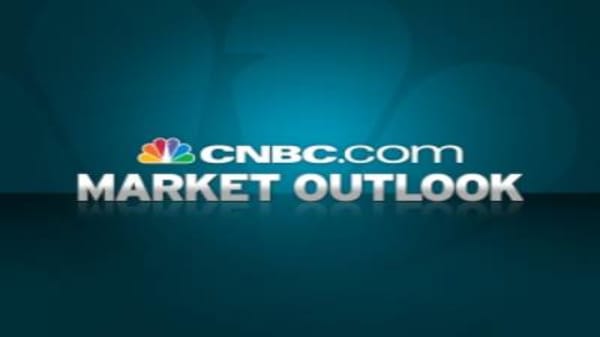Areas of improvement in the economic picture generated skepticism, with some economists pointing out that the data gains could have been the result of deceptive seasonal adjustments. Others noted that the market has been drifting around on low volume and a Standard & Poor's 500 with just 42 percent of its companies trading above their 50-day moving averages.
That could be the way things go as light volume persists and many firms already may have packed it in after a very difficult and volatile 2011 trading year. In fact, Thursday marked the second-lowest volume day in nine months, with Black Friday the only slower trading day.
"We’re also in a pattern right now of opening at the highs of the day for the indices, which is tough for traders and investors to handle," said Paul Hickey at Bespoke Investment Group. "Until we see some reversal of this trend, we’re not doing any buying."
Gains were broad-based, with materials, financials and industrials all posting solid marks for the S&P 500, where all but one of the 10 sectors were positive. Defensive stocks were the index's weakest performers.
The day also is notable for what is known as "quadruple witching," or the simultaneous expiration of four key options contracts, an event that is historically bullish for the market.
Gainers and losers were about even on the Dow, with the biggest gains coming from Home Depot and Microsoft . United Technologies , which said it expected to increase profits by 6 to 10 percent in 2012, was another weak performer for the bluechips.
Telecomm stocks also were weak, with SprintNextel and AT&T shares falling.
On the S&P 500, shares in Adobe Systems rose after reporting positive earnings Thursday.
In industry news, Fitch also downgraded Goldman Sachs , Bank of America and five other large banks based in Europe and the US, citing "increased challenges" in the financial markets.
Research In Motion posted a sharp drop in profit on Thursday, offered a dismal outlook for BlackBerry shipments around Christmas and delayed the likely arrival of a make-or-break overhaul of its smartphones, sending its shares tumbling.
Analysts converged on the company, offering a slew of downgrades and harsh criticisms of the company's attempts to expand market share. Deutsche Bank, for one, cut its price target to $10. RIM shares fell more than 10 percent in premarket trading.
Zynga shares fell even after the social gaming company's initial public offering priced at $10 a share.
This is around the time of the year when Wall Street pros start talking about a Santa Claus rally.
Though in the strictest sense the term refers to the trading period between Christmas and New Year's, it often is extended to include any rally around the holiday period. But a lackluster environment is beginning to dampen hopes that Santa will visit Wall Street this year.
"Should the market end up sliding lower into year’s end, and the late November (S&P 500) lows sub-1160 at all come into play, then we think the first six weeks or so of next year will trade even lower, followed by a second-half first quarter bounce that will be the one to sell into," Rick Bensignor, market strategist at Merlin Securities in New York, said in his morning analysis. "For if that scenario plays out, the second and third quarters will likely be quite ugly; we think painfully so for the longs."
Elsewhere:
Ista Pharamceuticals jumped on a takeover offer of about $6.50 a share from Valeant Pharmaceuticals, a bid that Ista said "sionificantly undervalues" the company.
Similar, RSC Holdings surged after rival United Rentals made a $1.9 billion offer for the company.
Cameron International said BP had agreed to indemnify the company for current and future compensatory claims associated with the Deepwater Horizon incident.
European stocks rose on Friday, extending the previous session's tentative rebound from a week-long drop, helped by better-than-feared U.S. macro data, but lingering concerns over the euro zone debt crisis kept gains in check.
The yuan jumped to a record high on Friday against the dollar on suspected intervention orchestrated by the central bank, its most explicit action in three months to deter speculators from betting on a fall in the currency.




